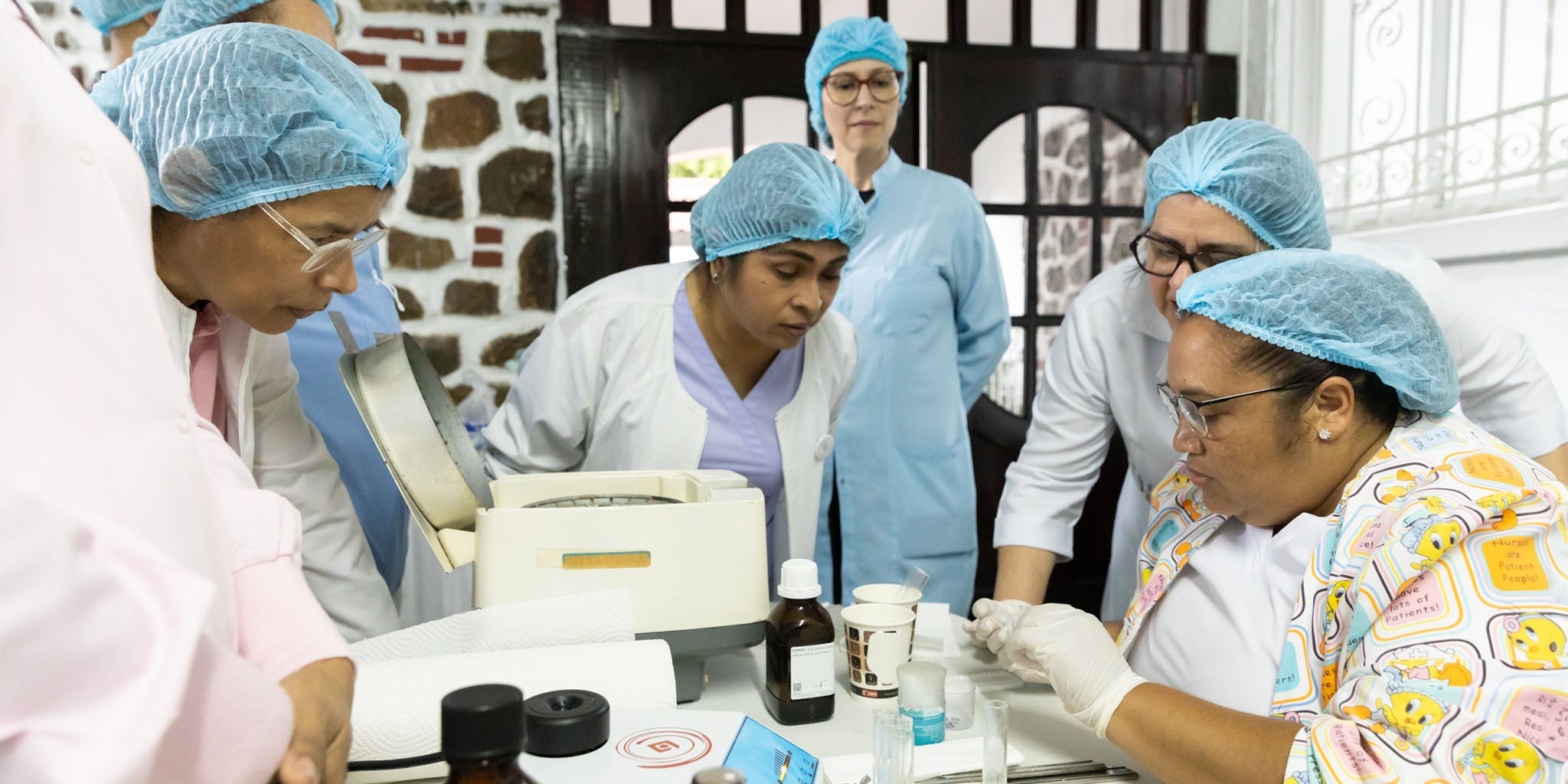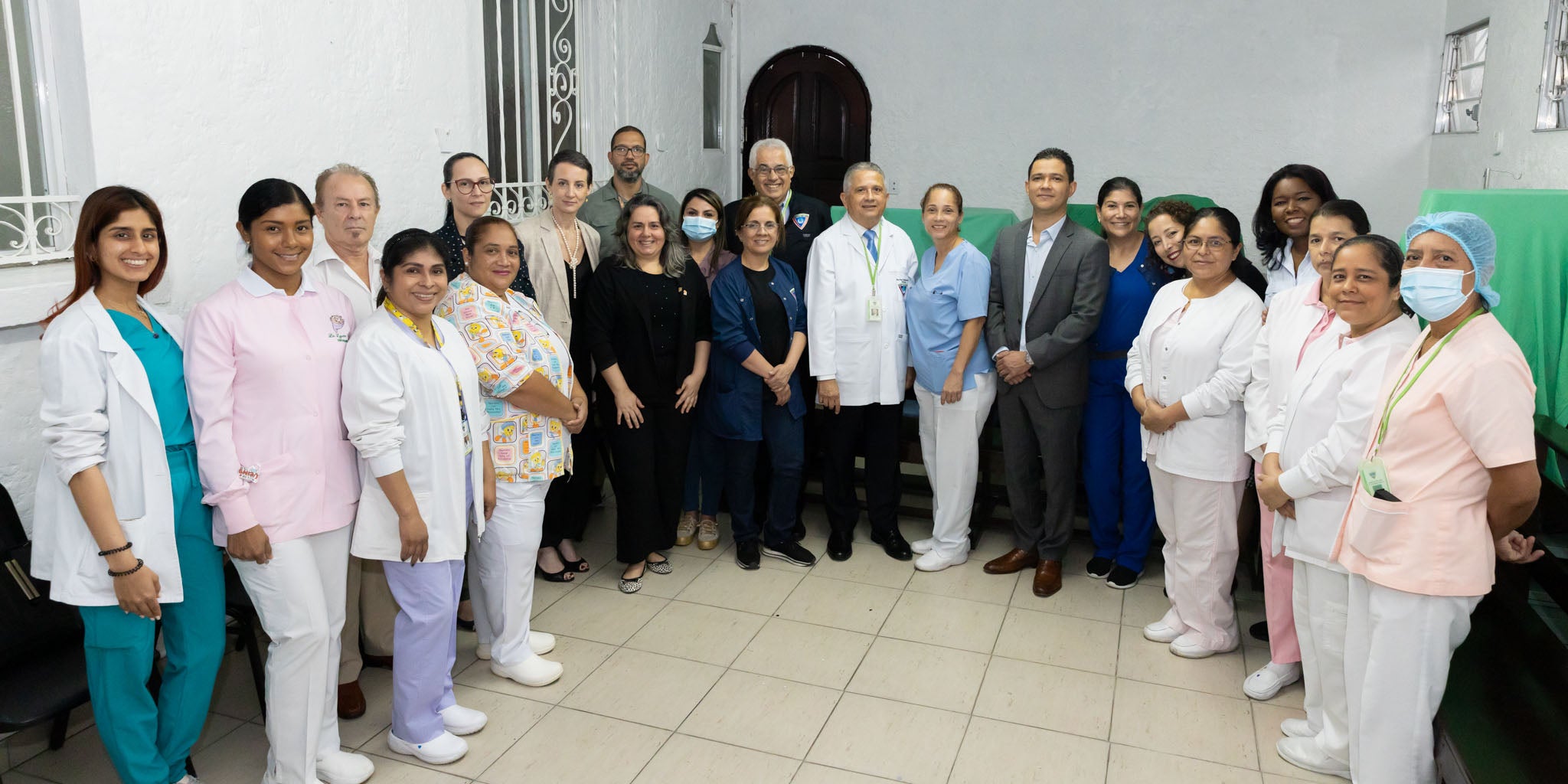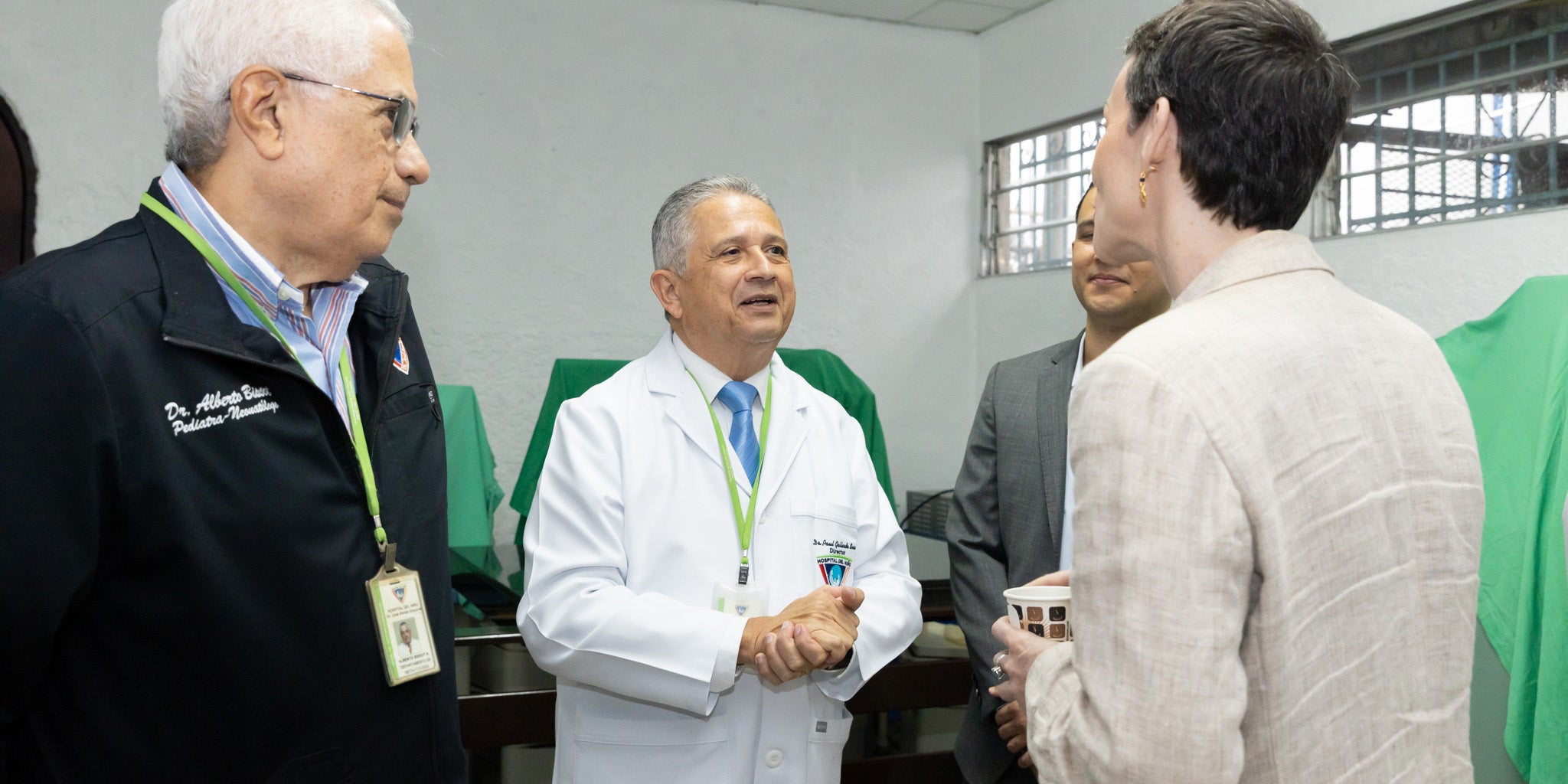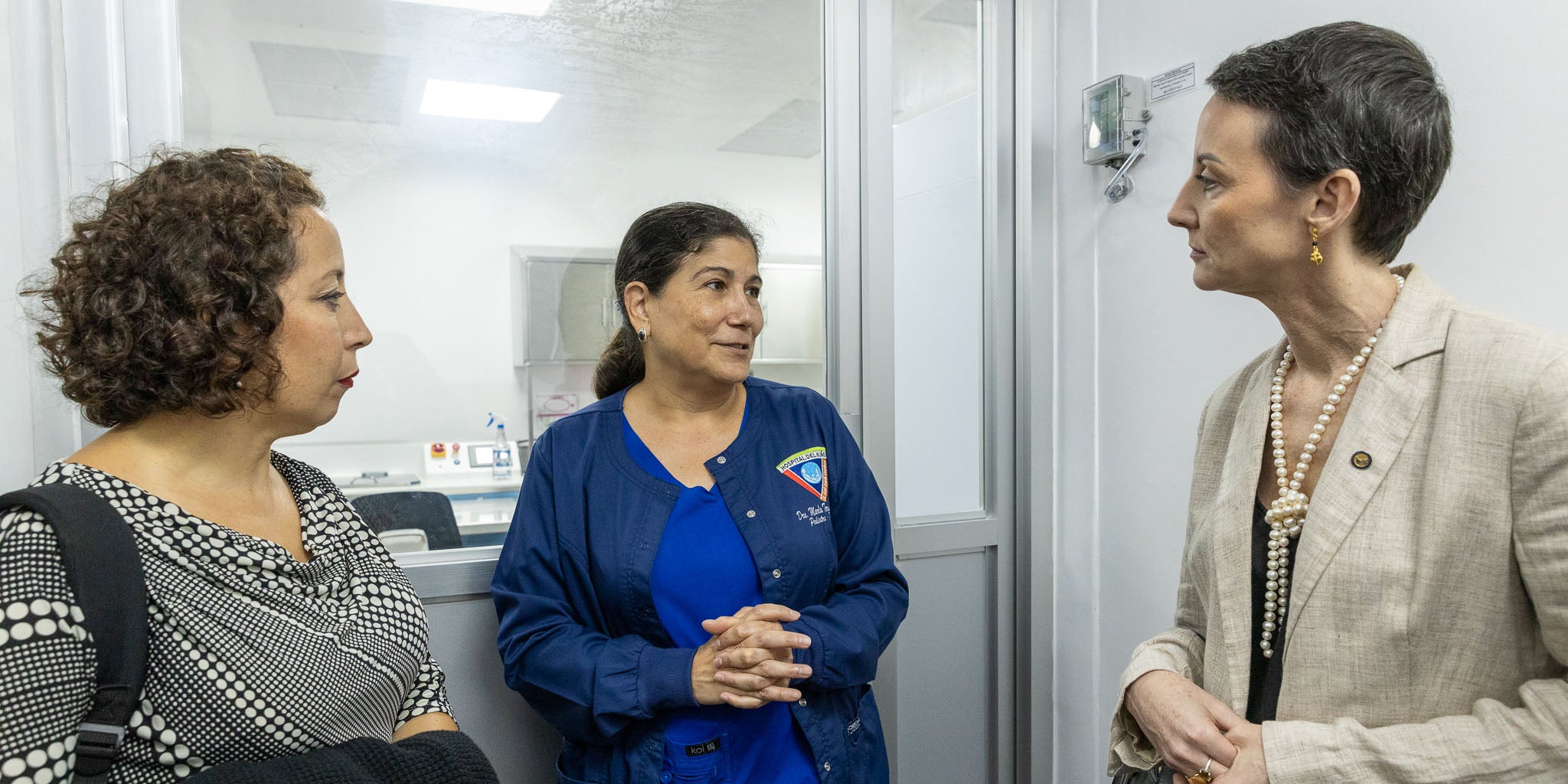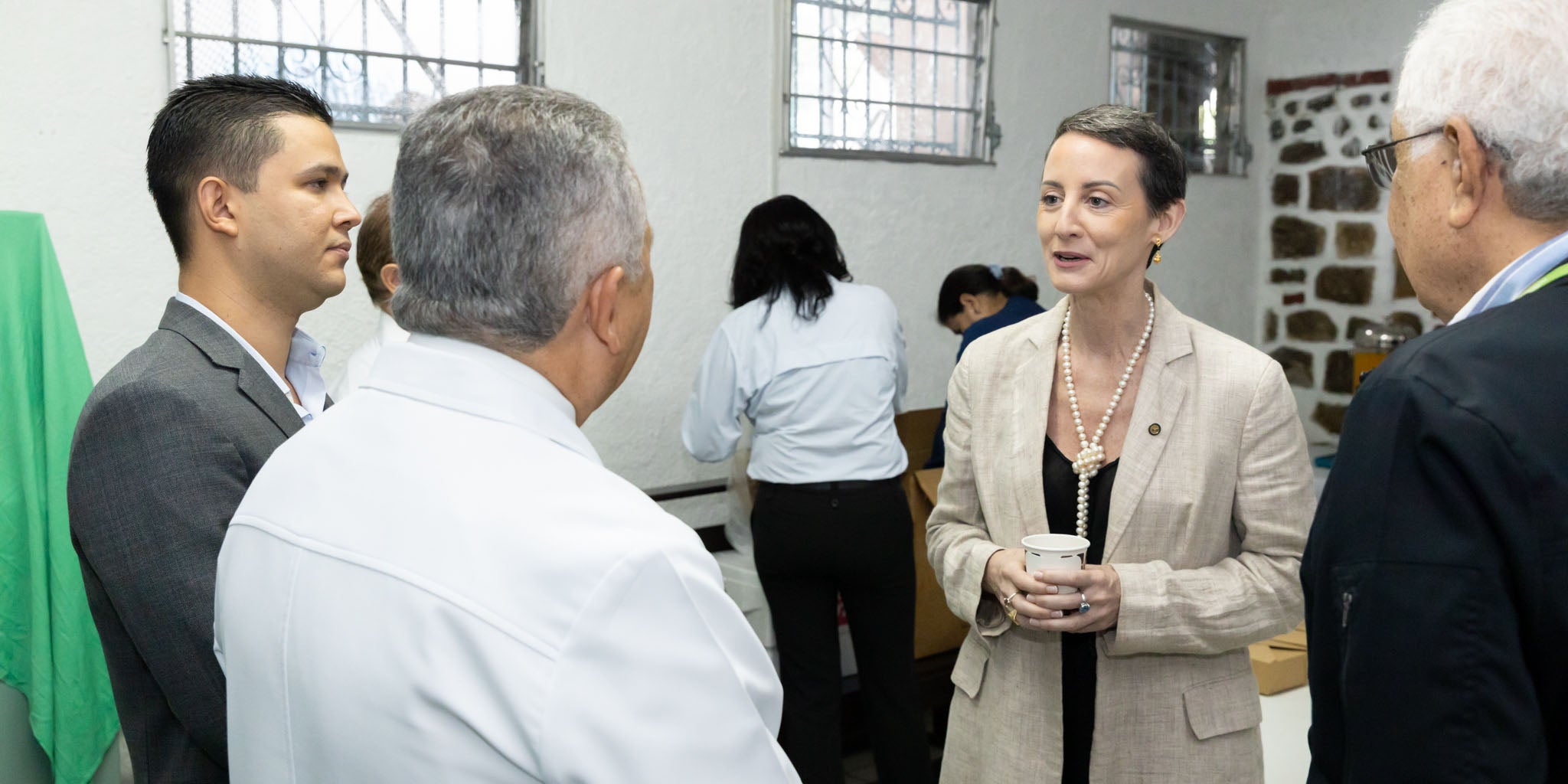
Panama, June 10, 2024 (PAHO) - The Panamanian Ministry of Health (Minsa) and the Hospital del Niño Dr. José Renán Esquivel, in collaboration with the Pan American Health Organization/World Health Organization (PAHO/WHO), the Latin American Center for Perinatology, Women's and Reproductive Health (CLP/WR), the Global Network of Human Milk Banks (RBLH) and the Oswaldo Cruz Foundation of Brazil, have promoted the development of a refresher course on the processing and quality control of human milk, with a focus on practical aspects.
The first Human Milk Bank in Panama was created in 1983 by the Hospital del Niño, which later, due to changes in its operation, became a lactation center. Thanks to management efforts, donations and international technical cooperation, the new Pasteurized Human Milk Bank was inaugurated, built and equipped with adequate technology for milk processing and quality control.
It should be noted that this Human Milk Bank will have a group of 13 specialized professionals, who for three months in 2023 received training from experts from the Global Network of Human Milk Banks and the Oswaldo Cruz Foundation of Brazil, in topics related to the quality and control of human milk, microbiota, physicochemical modifications, hygiene, extraction, thawing, among other aspects from collection to distribution to the premature newborn.
As part of the last phase of capacity building in the processing and quality control of human milk, these personnel were trained at the Pasteurized Human Milk Bank's facilities by Brazilian experts Raquel Ximenes Melo and Fernanda De Oliveira Lopes. The training covers practical aspects on general principles to guarantee quality and processing, use of equipment, handling of donations, selection and classification of milk, analysis of acidity and crematocrit, heat penetration curves, pasteurization, refrigeration and microbiological quality control, thanks to the technical cooperation of PAHO/WHO in Panama.
Dr. Paul Gallardo, director of the Hospital del Niño, expressed his satisfaction with the development of this course, highlighting the importance and impact that this Pasteurized Human Milk Bank will have on the health of the infant population, being the main national reference hospital where the promotion and protection of breastfeeding is one of its main focuses of action. In this sense, they wish to expand the scope, promoting the creation of human milk collection centers in different health centers, so that they can be transported and processed in this modern Milk Bank.
Dr. Maria Teresa Moreno, breastfeeding coordinator of the Hospital del Niño, pointed out that they have a multidisciplinary team prepared and in high spirits to start their functions at the end of this training, highlighting that by the second week of June they will have the visit of the first breast milk donor mother. She expressed that the new challenge will be to initiate the communication process to promote the donation of breast milk. Similarly, Dr. Edgardo Ureña, head of the children and adolescents section of the Ministry of Health, expressed his satisfaction with the development of this training and the beginning of the Bank's operation.
Dr. Ana Rivière Cinnamond, PAHO/WHO representative in Panama, highlighted and valued all the effort and dedication of the staff of the Hospital del Niño to obtain a Pasteurized Human Milk Bank with quality technology, capable of safely and timely offering the best complete and natural nutrition to newborns who require it.
With the launch of the third Pasteurized Human Milk Bank in Panama, the country is moving forward in the promotion of vital nutrition initiatives focused on saving lives, addressing malnutrition and non-communicable diseases in the population from early childhood. In this context, mothers, families, health professionals and the community in general are key actors in the promotion and protection of breastfeeding, with a view to increasing the percentage of infants in Panama who are exclusively breastfed until 6 months of age and continuing until 2 years and beyond.

